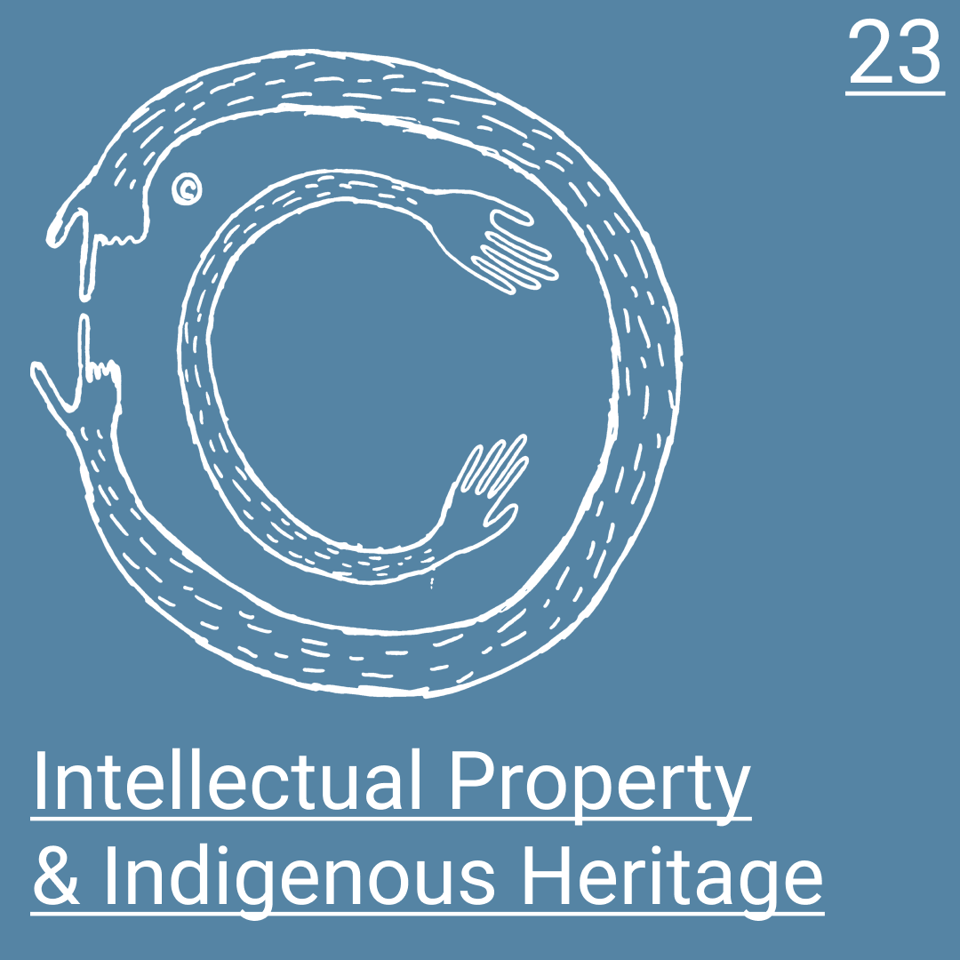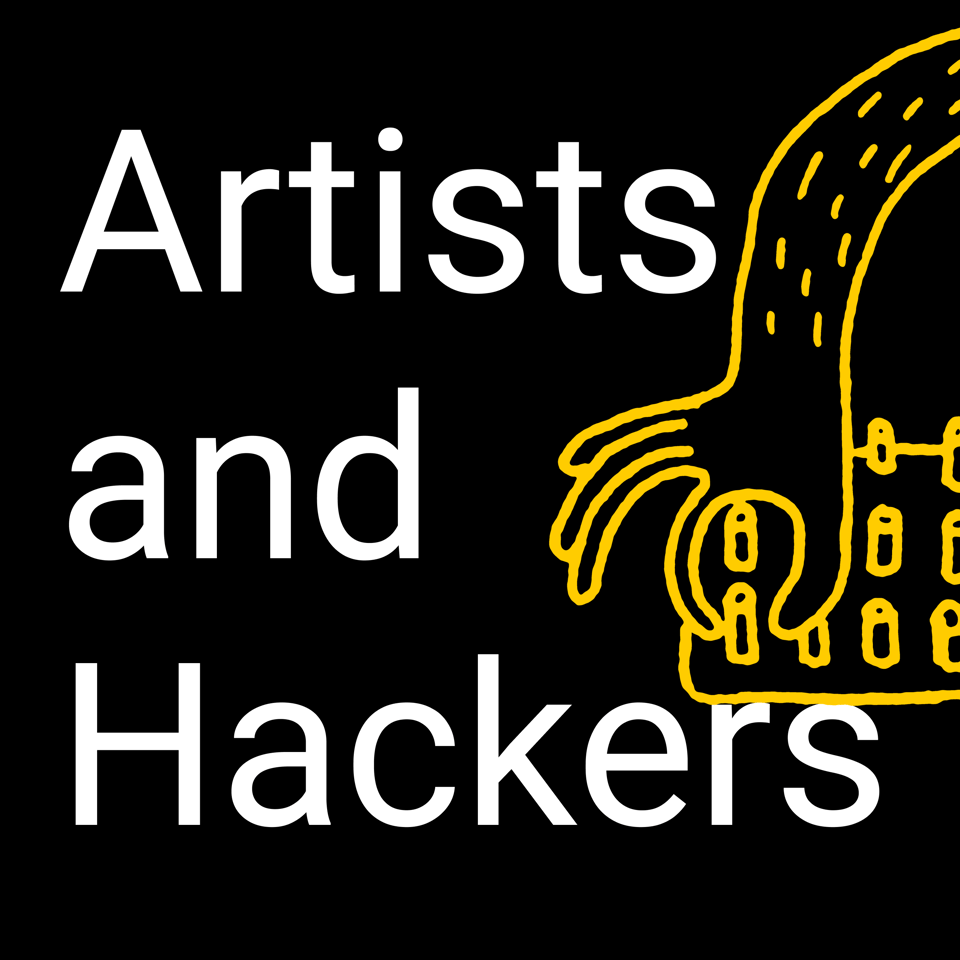Intellectual Property and Indigenous Heritage + art and award opportunities
In this email...our latest episode + links to the latest art awards, fellowship and other professional opportunities.
If you like what we do, can you rate us on your podcasting platform of choice?

Our new episode: Intellectual Property and Indigenous Heritage. Find it on our website. Listen or read the transcript. You can also listen on Apple, Spotify, and elsewhere, or subscribe to our RSS feed.
In this season of the podcast we’re working with the Engelberg Center for Innovation Policy at NYU Law.
In today’s episode, we’re looking at issues that come up in Indigenous communities, and one initiative to respond to the limitations of the law and to reassert cultural authority in one’s own heritage, culture and data.
We’ve been examining the world of copyright and how it relates to creative artworks and code, not because we’re interested in property on its own but because we’re interested in how artists and creators working on projects with current technology are running into societal issues that may or may not be addressed by law. In our interview with Michael Weinberg, Director of the Engelberg Center, he spoke about the monkey selfie legal case and how copyright is grounded in the idea that it’s a person that possesses copyright.
Creative Commons Director Kat Walsh spoke on the creation of creative commons as a hack on copyright when legislators wouldn’t step in to support work created and dedicated to the public. In our interview with programmer and artist Ramsey Nasser, he spoke about co-creating the Anti-Capitalist Software License due to a need for open source software licenses that do more to address the conditions of how software is written, allowing individual programmers and coops to use one’s code for example, but preventing a for-profit corporation from doing so. Creative Commons and the Anti-Capitalist Software License are two responses to perceived imbalances from copyright law, part of a community of folks interested in ethics and open source.
In this episode, Dr. Jane Anderson talks about how she found “the law doesn’t do a very good job in protecting collective knowledge.”
One of the big challenges in the area that I work in is the language of ownership to start with, and the framework of property itself conditions what’s possible to think about and what’s possible to talk about.
Jane co-founded Local Contexts, “a global initiative that supports Indigenous communities with tools that can reassert cultural authority in heritage collections and data. By focusing on Indigenous Cultural and Intellectual Property and Indigenous Data Sovereignty, Local Contexts helps Indigenous communities repatriate knowledge and gain control over how data is collected, managed, displayed, accessed, and used in the future.”
We also speak with Courtney Papuni of Te Whakatohea iwi in Opotiki. Courtney speaks on her community’s work with Local Contexts labels and the limitations of western notions of copyright on cultural heritage and knowledge.
Our audio production is by Max Ludlow. Design by Caleb Stone.
You can find more episodes, full transcripts, and links to find out about our guests and topics on our website artistsandhackers.org You can find us on instagram at artistandhackers, twitter at artistshacking (though we're really trying to wind down there!), and mastodon (our fave) at artistsandhackers at post.lurk.org You can always write to us on our website, and please leave us feedback wherever you get your podcast.
Coming soon: The return of the Monkey Selfie and the latest on public domain and generative AI. And we'll also be sending out a survey to gauge interest in Artists and Hackers merch: shirts, stickers, bags.
Opportunities:
Please verify deadlines as information could change or be listed incorrectly.
One week left to apply to Game Devs of Color Expo, held online Sep 18 - 21.
Apply to speak. Or submit a game. Deadline to apply: April 19.
Talks are compensated $150 - $500 USD. Game submissions are eligible for no-strings grant funding ranging from $15K - $25K USD per team. Board game and digital games can be submitted.
Link to more info
Deadline: 19th April
Call for Submissions: Vector Festival 2024
"All artists selected for participation will receive fees in accordance with CARFAC and IMAA fee schedules, as well as support to apply for external funding...an experimental media arts festival dedicated to showcasing digital games and creative media practices. Presenting works across a dynamic range of exhibitions, screenings, performances, lectures, and workshops."
Deadline: 19th April
Internet Society Foundation is currently listing grants for "global research collaborations that advance understanding of the Internet and its value for all."
Areas of focus: Greening the Internet , The Internet Economy, A Trustworthy Internet, Decolonizing the Internet.
Deadline: 14th May
ORAL.pub is open for submissions
Founded in 2016, ORAL.pub publishes poetry/art made for and inseparable from the web (web art, e-poetry, net.art, e-lit, digital language art, etc.) - often in translation
Deadline: 31st May
Processing Foundation Fellowship Program - Deadline is May 2
The Processing Foundation is thrilled to announce the open call for our 2024 Fellowship Program, themed ‘Sustaining Community: Expansion & Access.’ This year, we seek to support innovative projects from artists, designers, activists, educators, engineers, researchers, coders, collectives, and many more, who are working at the intersection of creative technology, art, and open-source software.
Deadline: 2nd May
Have an idea for an episode, or a response to anything we've covered? Want to let us know of artist opportunities that our community may be interested in? Drop us a line. We post opportunities to our Mastodon account as they come in.
Thanks for listening.
